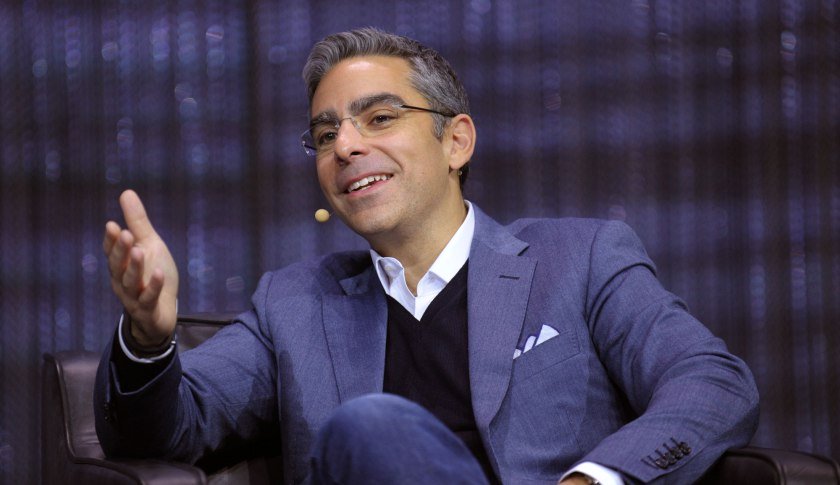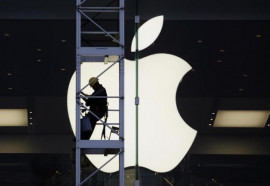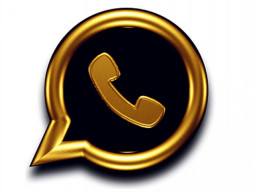
By the end of 2017, Facebook’s messaging app will look a whole lot different. Apart from a better messaging experience, this may also mean the end of phone numbers as we know it.
Facebook messaging products’ vice president David Marcus believes phone numbers will eventually become obsolete as a form of communication.
In an interview with Time magazine, Marcus said he believes chat apps will become so popular that they will replace phone numbers.
"The real question is, in a couple of years if you will need a phone number on a business card? Or if you’ll need a business card at all for people to find you," the Facebook executive said.
“It’s a profound change actually, and I believe it’s really happening. People used to call your house, they didn’t call you. And so we went from calling your house, to calling your number, to calling you for real. It’s an interesting evolution,” he added.
Revealing Facebook’s ambitious plans for this year, Marcus said by the end of 2017, Facebook’s messaging app “will look a whole lot different.”
Apple introducing new iMessage features to take on competitors
Speaking about the new Facebook Messenger inbox layout, which will show information like your friends’ birthdays as well as which of your friends are active on Messenger at a given moment, he said, “We believe birthdays are actually a really important thing, especially for your close friends. Birthdays, for [most] of your friends, you’re probably more inclined to write on their Facebook page.”
However, in some cases, you might want to message your friends on their birthdays but may not want to disturb them by calling. That’s where Marcus believes Messenger’s 'Active Now' feature will come in handy. As opposed to phone calls and texting, which are involved processes, 'Active Now' feature ensures that the friend you want to talk is available to chat, he explained.
Responding to a query regarding introduction of a reaction tool in Messenger, like tapping on a piece of dialogue to like it similar to the one announced by Apple recently, Marcus said it is on their long wish list to make group messaging better.
There's a football game hidden inside Facebook messenger
The Facebook executive also hinted at the possibility of rationalising notifications to differentiate between those from humans versus chat bots. However, Marcus held that most of the notifications that we receive are from friends and further, one can preview the notification to know what it is. But, "If there are lots of interactions that actually notify people a lot, we can mute these notifications, or we can group them. Right now it’s not a problem, it’s a hypothetical future problem,” he said.
With reference to his blog post from January, in which Marcus revealed that there are innovations coming to Messenger this year, he said voice and video calling feature to Messenger was the first step in that direction.
“We’re really intrigued by, what are the next forms of real time communication? So we’re thinking about how do we actually reinvent a little bit those real-time communications,” said Marcus. However, he refused to give any hint about what’s coming next.
There's a football game hidden inside Facebook messenger
Further, he said, Facebook is also considering investing in making photo sharing inside Messenger better.
Apart from that, Facebook is also looking to make groups a lot better. “We just want to make sure groups are really easy to create, that everybody can be included in them, and that they’re easy to find. I think it’s a really good group product, but I think it can become an awesome group product,” he added.
Explaining why companies like Apple, Google and Microsoft are making efforts to improve their chat apps, Marcus said one of the biggest factor is that people now spend more time on messaging apps than ever. Currently, over 900 million are on Messenger, while over a billion on WhatsApp. Marcus also said there was a time when SMS was a big thing. While it was instant and easy, he argued that in terms of capabilities SMS was very narrow.
Now, the prevalence of broadband connectivity on devices is allowing devices and operating systems to expand exponentially. “And as a result you can build compelling experiences inside messaging apps that solve a lot of the real problems, like the friction involved in downloading, installing and signing up for an app all the way to the shortfalls of the mobile web,” he added.
The article originally appeared on Time
Have something to add to this story? Share it in the comments below.



































































COMMENTS (2)
Comments are moderated and generally will be posted if they are on-topic and not abusive.
For more information, please see our Comments FAQ